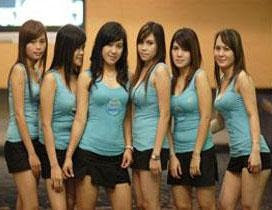BMTH live in Jakarta 2024
This time around Ravel gets it right and BMTH (Bring Me The Horizon) are headlining the Nexfest festival in Jakarta which also features Babymetal. In this format there is no seating - which makes for a much more intimate experience - although you do have to arrive really early if you want to pick a spot right up close to the stage. We arrived about six hours before BMTH were scheduled to start their performance and bought plenty of drinks to stay hydrated in the tropical afternoon heat (mind you, some of those were Iceland vodka mix!) This was a gig I had long been looking forward to - especially after the debacle last year. Not everyone likes BMTH of course. For deathcore fans the band sold out. For metal heads the band is not purist enough. And for the wider mainstream audience, the band is too heavy. You can't please everyone of course but there are few bands in the rock world which can match the sheer emotional velocity of BMTH. To bring metal and even aspects of metalcore t...



Comments
Post a Comment